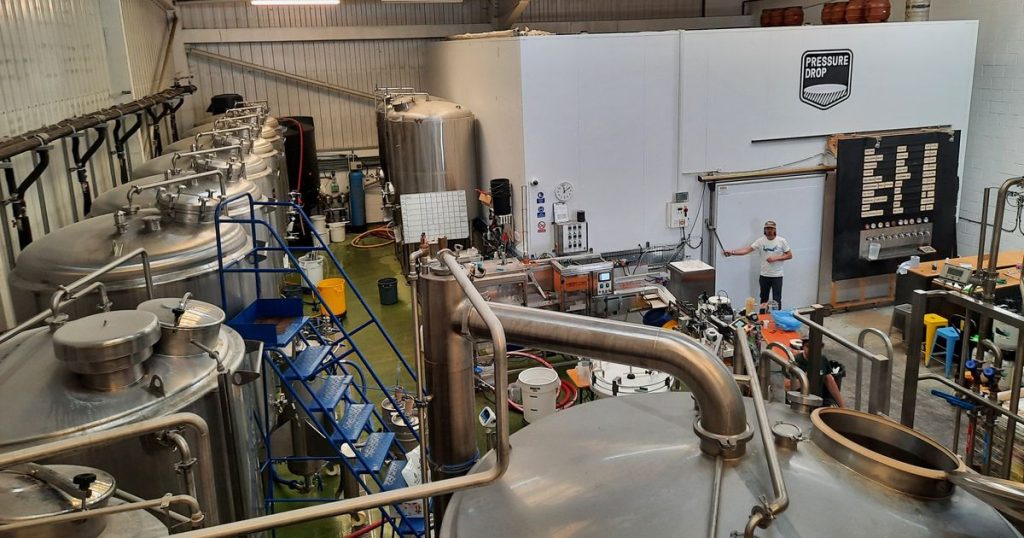
The four-day workweek tested in UK companies
Reggae in the speakers. A few employees load barrels amid huge stainless steel tanks. In this warehouse in Tottenham, north London, beer is brewed. 30,000 liters per month.
Claire Doherty is one of 9 employees at Pressure drop. She’s in charge of sales and for just over two weeks, she’s been trying a week of 4 days.
“I try to deal every day with a stronger organization. If I start by saying ‘Oh I’ll do that tomorrow’ my colleague might be far behind and we’ll be left behind. I hope to work in a more considerate and more thoughtful way. The moment work is done, over a week, what’s the problem?”
More focused and organized, she can then work one day less, without losing efficiency, she is convinced of this. Good for her, good for the company. So far, his extra leave has mainly served him to shop, go see his bank, and make a medical appointment.

“Everything seems so boring. I’d like to tell you I’m writing a novel or something. But that just means when I get back to work my mind is clearer because this free time allows me to take care of all that too.”
Sam Smith founded this company 10 years ago. This president in Bermuda makes it clear that he has no intention of conquering the world. He presented this experience to his employees with the enthusiasm of being a pioneer. But within a strict framework, he will not hire anyone and the balance sheet will be drawn down within 6 months.
“Yes, anything is possible. We said it to the employees clearly: It is just a test. It will be a success if there is no negative impact, it should work for the benefit of the shareholders as much as it works for the employees.”
Sponsor in the pool on Friday
In this company that works 7 days a week, one day less work for everyone, it takes a lot of organization, especially during the holiday period and thus reducing the number of employees. But Sam Smith believes so. He applies it elsewhere and is not so happy when he now goes to the pool on Friday. But when he is in the office, the level of concentration is higher.

“The main change is the level of anticipation for the coming days. Previously, we were in a five-day routine where we knew everyone was there. Now everyone is more focused, we don’t put off what we have to do until tomorrow. We all anticipate and plan our week all the time.”
This London brewery experiment, like the entire British project, is being led by an organization called 4 days a week. A New Zealand idea developed by business leaders and academics for worldwide dissemination. This organization works to raise awareness and provide organizational assistance. Charlotte Lockhart is one of its leaders.
“As business leaders, when we focus on productivity without giving people tangible advantages to improve it, we are not creating an enabling environment. More free time also helps the rest of the community. Local associations and sports clubs struggle to find people involved because no one seems to have time.”
Academics from Cambridge, Oxford and Boston follow the British experience in detail. They will assess the consequences for the productivity and quality of life of the 3,300 people participating in this test.

“Organizer. Social media geek. General communicator. Bacon scholar. Proud pop culture trailblazer.”
